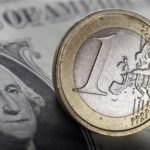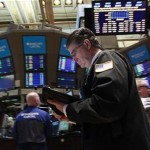On Thursday the euro trimmed gains against the US dollar, achieved yesterday after FED Chairman Ben Bernankes statement, pulling back from three-week highs.
EUR/USD hit a session high at 1.3206 at 22:50 GMT on Wednesday, the highest point since June 21st, after which slid to 1.3078 at 6:51 GMT, still up by 0.78%. Support was expected at current session low, 1.2961, while resistance was likely to be encountered at June 21st high, 1.3253.
On July 10th Federal Reserve Chairman Ben Bernanke said that banks policy should remain accommodative, even after the minutes of FEDs June meeting revealed that there were debates, regarding a possible exit to the stimulus program. According to FED minutes, half of the 19 members of FOMC voted in favor of terminating monthly asset purchases by the end of this year. At the same time some of the policymakers expected to see a more resilient increase in US employment before embarking on a reduction of scale of stimulus.
“The information that we have received overnight is important for the near-term direction for the U.S. dollar”, said Andrew Salter, a foreign-exchange strategist at Australia & New Zealand Banking Group Ltd. (ANZ) in Sydney, cited by Bloomberg. “We’ll see good opportunities over the next couple of days to buy into dollar weakness.”, he also added. ANZ expects the US dollar to trade at 105 yen and $1.37 per euro by December 31st, as imparted by Bloomberg.
The United States will release its weekly report, regarding initial jobless claims later in the trading day. Preliminary estimates pointed a decrease by 3 000 to 340 000 claims during the week ended on July 6th 2013.
Meanwhile, the euro gained against the pound, with EUR/GBP cross adding 0.20% to 0.8656. The common currency traded lower versus the Japanese yen, as EUR/JPY pair dropped by 0.12% to 129.13.
The dollar has increased by 5.4% this year, the best performing currency among 10 developed-nation currencies, tracked by Bloomberg Correlation-Weighted Indexes. The euro was the second-largest gainer, adding 4.7%, while the Japanese yen registered the most considerable drop within the group, falling 8.7% since December 31st 2012, according to Bloomberg.





